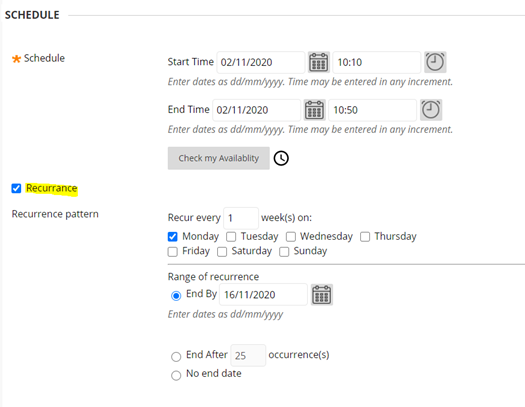
Annually, the Learning and Teaching Enhancement Unit run the Exemplary Course Award, which recognises the very best practice in using Blackboard. This blog post details changes we have made to the process, when dedicated training sessions will be run, how and why to apply, and when the deadline for applications is.
To get an idea of what an ECA-winning module might look like, you can view last year’s winners’ module walk-throughs here (Lara Kipp, in English only, and Rhianedd Jewell, in Welsh and English).
Recognising the particular challenges of this academic year, we have put our heads together to streamline the process in the hopes that even more applicants submit their modules for consideration. The process is still rigorous and detailed, but we have made some key changes to encourage as wide a range of applications as possible.
What has changed?
• You can now submit in two different formats: either a written narrative of up to 500 words, or a Panopto recording up to 4 minutes in length.
• We have streamlined the form in such a way that applicants only need to tick whether a criterion is fulfilled or not – no need to agonise over how many points to award yourself.
• We have integrated the criteria weighting into the form, meaning applicants do not need to calculate scores anymore.




 As lecturer in learning and teaching responsible for the PGCTHE, I keep an eye out for new resources to help our staff teach effectively online. This includes externally-provided webinars, toolkits, publications and other resources. Because active learning is high on our university agenda, I’m particularly keen to share guidance for moving active learning online. Below I’ve listed items that came to my attention in the past week. In the interest of clarity, our policy is to show the titles and descriptions in the language of delivery.
As lecturer in learning and teaching responsible for the PGCTHE, I keep an eye out for new resources to help our staff teach effectively online. This includes externally-provided webinars, toolkits, publications and other resources. Because active learning is high on our university agenda, I’m particularly keen to share guidance for moving active learning online. Below I’ve listed items that came to my attention in the past week. In the interest of clarity, our policy is to show the titles and descriptions in the language of delivery.  On Wednesday 16th December, the Learning and Teaching Enhancement Unit will host their next Mini Conference.
On Wednesday 16th December, the Learning and Teaching Enhancement Unit will host their next Mini Conference.